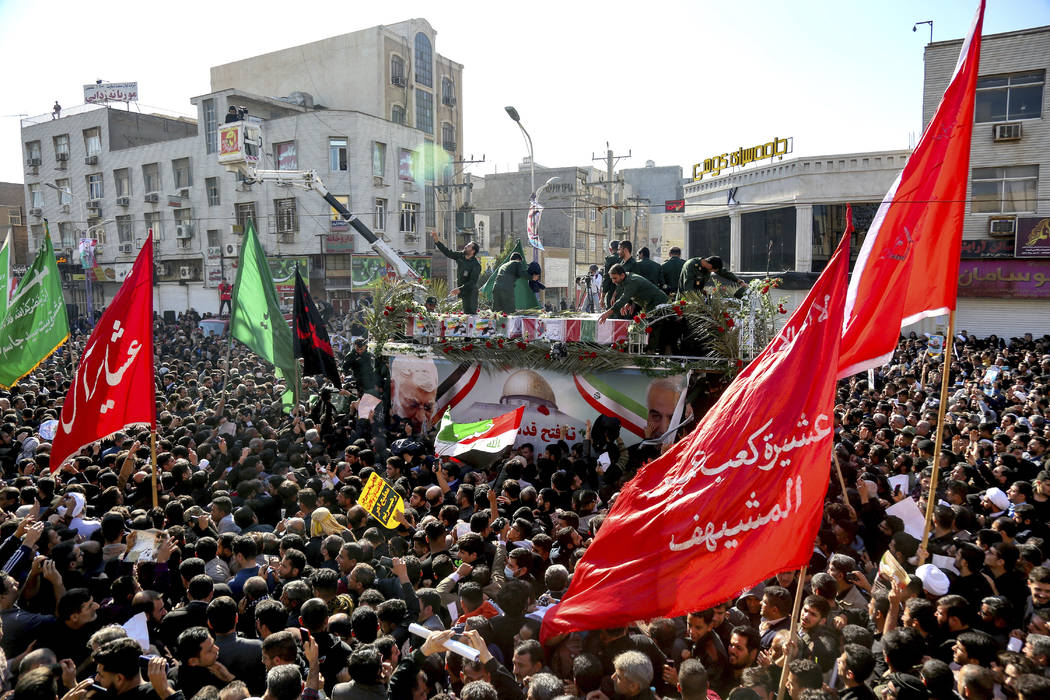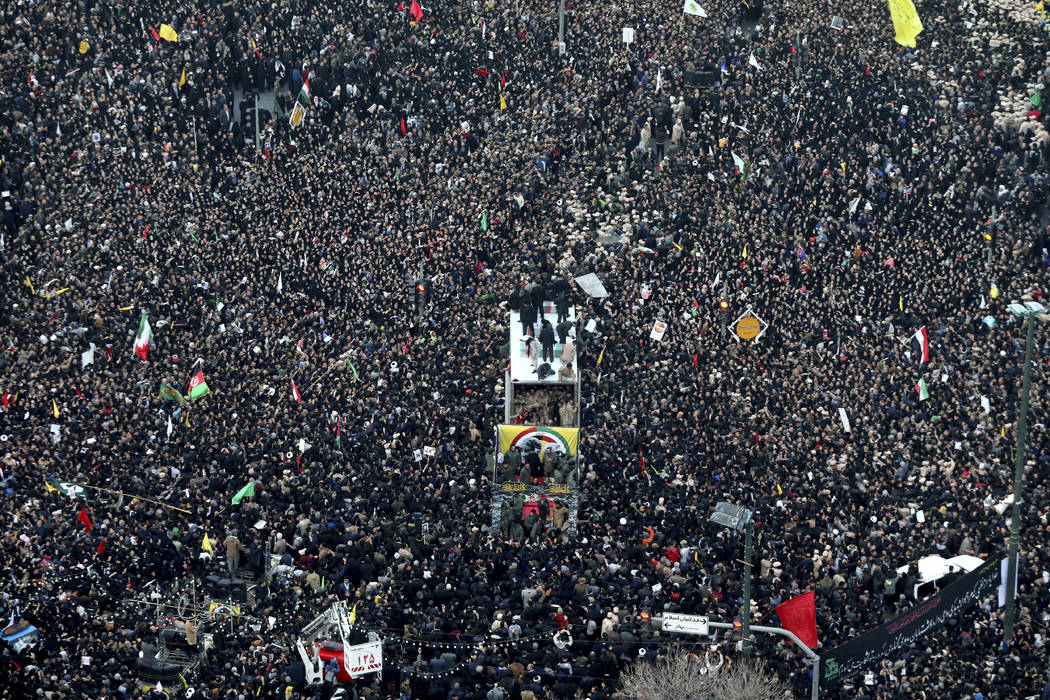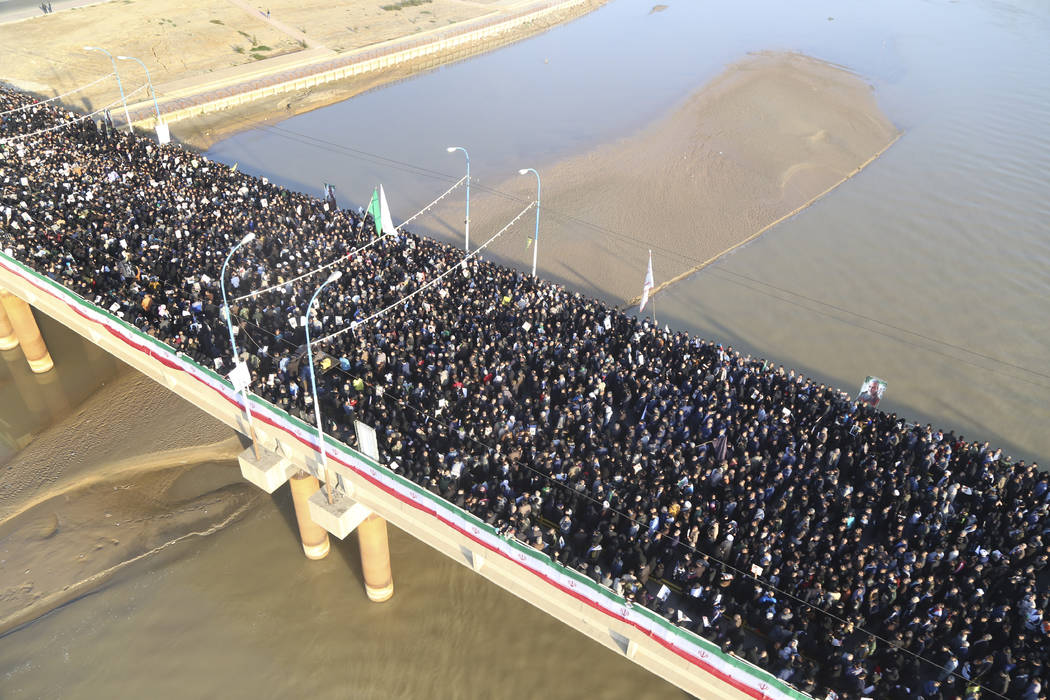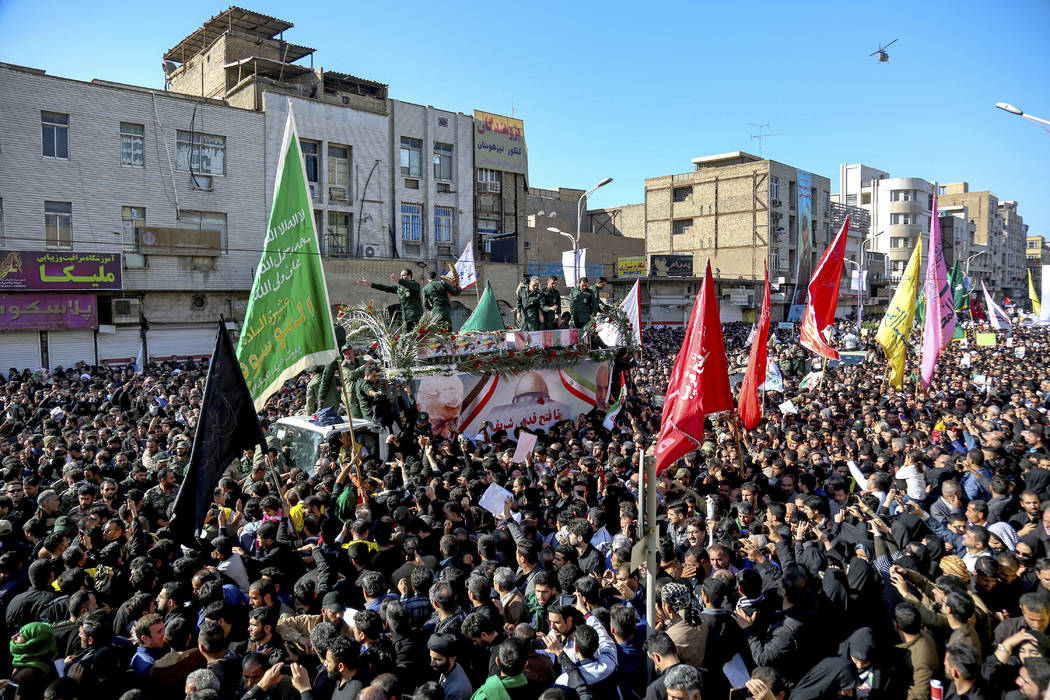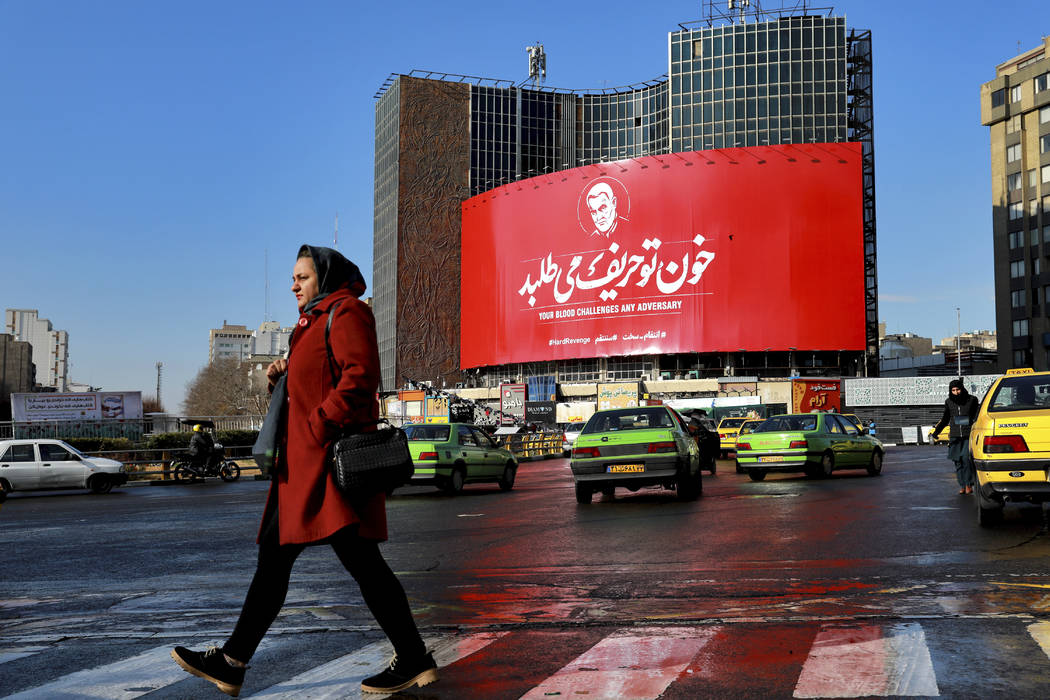Mideast knot grows tighter in wake of US killing of Iranian general
TEHRAN, Iran — Tensions over the U.S. killing of the head of Iran’s terrorist Quds Force mounted Sunday as Iran announced that it will no longer abide by the limits contained in the 2015 nuclear deal and Iraq’s Parliament called for the expulsion of all American troops from Iraqi soil.
The killing of Iranian Maj. Gen. Qassem Soleimani on Friday was a U.S. response to a December attack on the U.S. Embassy in Iraq and was based on intelligence that Soleimani was planning further attacks on U.S. diplomats and service members.
Iranian state television cited a statement by President Hassan Rouhani’s administration that the country will not observe the deal’s restrictions on fuel enrichment, on the size of its enriched uranium stockpile and on its research and development activities.
“The Islamic Republic of Iran no longer faces any limitations in operations,” a state TV broadcaster said.
However, Iran had not abided by the deal and had previously resumed uranium enrichment.
The State Department had no immediate comment on Iran’s announcement.
In Iraq, meanwhile, lawmakers voted in favor of a resolution calling for an end to the foreign military presence in the country, including the estimated 5,200 U.S. troops stationed to help fight Islamic State extremists. The bill is subject to approval by the Iraqi government but has the backing of the outgoing prime minister.
In yet another sign of rising tensions, the U.S.-led military coalition in Iraq said it is putting the battle against IS on hold to focus on protecting its own troops and bases.
The string of developments capped a day of mass mourning for Soleimani, killed Friday in a U.S. drone strike in Baghdad. Hundreds of thousands of people flooded the streets in the cities of Ahvaz and Mashhad to walk alongside the casket of Soleimani, who was instrumental in funding and directing the terrorist organizations Hezbollah and Hamas and supporting the Assad regime in Syria.
As for the troop withdrawal vote in Iraq, State Department spokeswoman Morgan Ortagus said the U.S. is awaiting clarification on its legal meaning but was disappointed by the move and strongly urged Iraq to reconsider.
“We believe it is in the shared interests of the United States and Iraq to continue fighting ISIS together,” Ortagus said.
Meanwhile, Iran insisted that it remains open to negotiations with European partners over its nuclear program. And it did not back off from earlier promises that it wouldn’t seek a nuclear weapon.
However, the announcement represents the clearest nuclear proliferation threat yet made by Iran since President Donald Trump unilaterally withdrew from the accord in 2018 and reimposed sanctions. It further raises regional tensions, as Iran’s longtime foe Israel has promised never to allow Iran to produce an atomic bomb.
Iran, which has long vowed to destroy Israel, did not elaborate on what levels it would immediately reach in its program. Tehran has already broken some of the deal’s limits as part of a step-by-step pressure campaign to get sanctions relief. It has increased its production, begun enriching uranium to 5 percent and restarted enrichment at an underground facility.
While it does not possess uranium enriched to weapons-grade levels of 90 percent, any push forward narrows the estimated one-year “breakout time” needed for it to have enough material to build a nuclear weapon if it chose to do so.
The International Atomic Energy Agency, the United Nations watchdog observing Iran’s program, did not immediately respond to a request for comment. However, Iran said that its cooperation with the IAEA “will continue as before.”
The attack on the U.S. Embassy in Iraq was the start of a major escalation in the U.S.-Iran tensions after months of back-and-forth threats that have put the wider Middle East on edge.
Iran has promised “harsh revenge” for the U.S. strike on Soleimani, while Trump has vowed on Twitter that the U.S. will hit back at 52 targets “VERY FAST AND VERY HARD. ”
The U.S. Embassy in Saudi Arabia warned Americans “of the heightened risk of missile and drone attacks.”
Soleimani’s remains will go to Tehran and Qom on Monday for public mourning processions. He will be buried in his hometown of Kerman.



